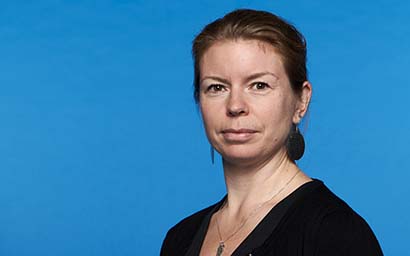About 18 months ago, I hosted a virtual panel of international investors, comprising fund managers, asset owners and assorted other industry figures. “Of course, no one could have predicted a global pandemic,” said one, explaining why his fund management house had been scrambling (like the rest of the financial markets) in the first tumultuous months of 2020.
“We did,” said another panellist, much to the surprise of the others. “We gave it a 1% chance of happening.” This 1% chance had been built into his fund’s model, he informed us. The board figured it was a logical assumption, since the world had not been rocked by something as major as the influenza outbreak that killed millions for a while, so it was bound to happen again soon. Of course, there was evidence and calculations to back all this up, but essentially that was the argument.
Did the model save the fund from the volatility and uncertainty that rocked the markets in the first chaotic months of the pandemic? No – but at least the board had asked the question, thought about it, and had the basis of a “don’t panic” plan. It had exercised its fiduciary duty in assessing all the variables.
I mentioned this 1% chance figure to a fund manager a couple of weeks ago and how it applied to fiduciary duty and ESG. We were talking about an analyst report that suggested investing in weapons and munition companies could be classed as ESG, if what they produced ended up in the hands of the ‘goodies’.
(Of course, this would be impossible to guarantee – weaponry and munitions are some of the planet’s most pilfered articles – even if investment committees were agile enough to move their money in line with any global conflict happening at the time.)
While wishing to keep geopolitics out of this column in the main, it’s a fair assumption that a major global conflict should have had a higher probability of taking place than a global pandemic. Both are founded on human activity, although few of us can effectively halt a conflict by working from home and ceasing all non-essential travel and socialising.
As we sipped our drinks, we went over the well-trodden argument about what ‘fiduciary duty’ means – whether an investor should defund these types of goods, even if they made a remarkable return – and it struck me that the ‘can guns be good?’ argument took the debate to a deeper level.
I was reminded of a university pub quiz question about the length of the UK coastline, which, it turns out, gets longer the closer you look. Rather than taking a point-to-point measurement, by getting into the detail and measuring the contours of every pebble and cliff face, the length is….well, longer than you’d expect. This is the Coastal Paradox.
This applies equally to ESG. The closer we look into ESG, the more there is to see. For example, demanding the closure of an exploitative operation or company with dubious political links could sever a vital lifeline for its workforce. Shifting energy production without a full understanding of the impact on the communities that currently depend on its revenue will cause a whole host of new problems.
At its ultimate end, the Coastal Paradox will see geographers counting – and measuring – grains of sand. And let’s not forget, that coastline is constantly being disrupted by the tide.
In cartography terms, we’re still mapping out what we mean by ESG and confronting a load of biases, but I’m excited to see where this journey takes us and what we’ll learn on the way.
By Liz Pfeuti
© 2022 funds europe





